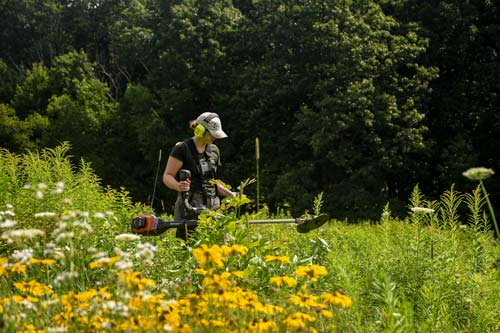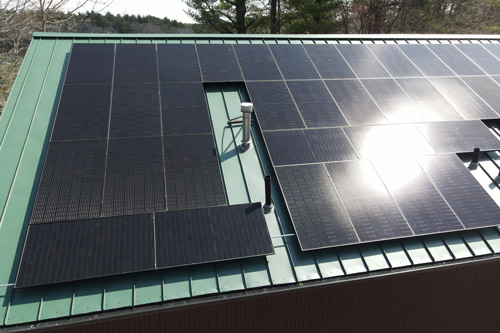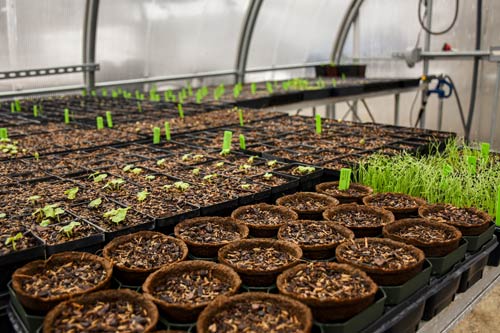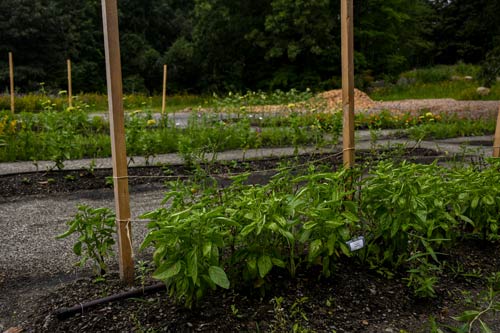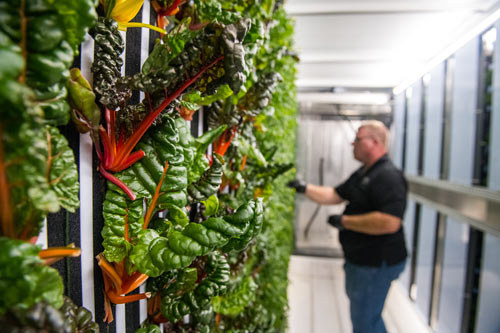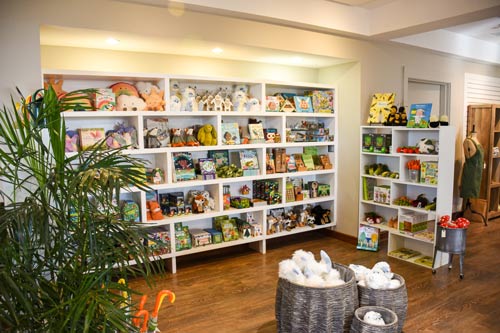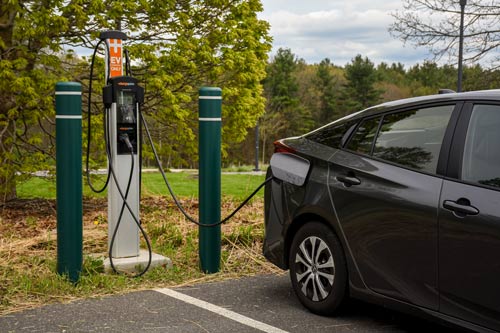SUSTAINABILITY AT THE GARDEN
Botanic gardens can play an important role in the collective effort to adapt to and mitigate climate change. At the Garden, we weave sustainable practices through our operations and serve as a resource to other institutions, municipalities, or industry professionals looking to make similar sustainable changes in their communities, organizations, and backyards. Explore the Garden’s initiatives below and contact a member of our horticulture team if you would like to learn more.
HORTICULTURE DECARBONIZED
Action on climate change requires reducing our demand for fossil fuels. By using electric equipment, renewable energy, sourcing locally, and adopting gardening techniques that minimize carbon output, climate-neutral landcare operations can be achieved, even at scale. New England Botanic Garden is headed in this direction.
In 2022, New England Botanic Garden became the first botanic garden in the nation to earn Green Zone certification from the American Green Zone Alliance (AGZA) for its efforts to decarbonize horticulture operations with electric landscaping equipment. Since our journey to Green Zone certification began in 2019, we have replaced gas-powered mowers, leaf blowers, string trimmers, and chainsaws with electric models, and have also incorporated a fleet of 11 electric utility carts into our regular horticulture operations. Estimates suggest that these transitions eliminate an estimated 50 tons of carbon dioxide emissions annually. That’s the equivalent of planting 2,220 trees or taking eleven gas-powered cars off the road each year. Learn more about the Garden’s transition to electric.
The Garden’s horticulture barn, located on the outskirts of the parking lot, houses a variety of tools including a collection of electric-powered landcare equipment and utility carts. In 2023, the Garden installed a solar array onto the roof of the barn that generates 17,522 kWh of power, 121% of the organization’s previous usage for the barn. With this solar array, we can charge the horticulture team’s electric equipment without fossil fuels.
This solar project was made possible by a $112,000 grant from the Massachusetts Cultural Council’s Cultural Facilities Fund and a $50,000 grant from the Tern Foundation’s TernSOLAR Challenge Grant Program. Tern Foundation’s TernSOLAR Challenge Grant Program is designed to expand renewable energy use in Massachusetts communities, making solar technology more accessible to nonprofit organizations. Grants are offered to dynamic nonprofits whose leaders engage creatively with their communities and also consider future generations and the natural environment in their strategic priorities and sustainability planning. Since 2010 Tern Foundation has funded 25 solar projects and associated environmental education initiatives. In addition to these funding partners, the Garden also extends thanks to individual donors to this project, John C. Amoroso and Bruce Fishbein and Sara Shields.
New England Botanic Garden doesn’t have space onsite to grow all of the plants visitors enjoy in the gardens throughout the year. While a number of specialty plants are grown in our greenhouse, most plants are acquired from local nurseries and garden centers. Sourcing locally limits the carbon impact associated with transportation. Around 95% of plant material used at the Garden travels from 150 miles away or less. The Garden’s sourcing choices align with the Sustainable Sites Initiative (SITES), a rating system designed to help organizations consider the impacts of their operations and incorporate more sustainable solutions.
Plastic presents one of the biggest challenges to our Garden’s sustainability efforts—and to the public garden and horticulture industries as a whole. We have worked diligently to remove as much single-use plastic from the Garden as possible. While we cannot completely remove all plastic from our operations, we reuse and recycle as much as we can. We donate plastic plant pots to local garden clubs for plant sales and other activities, and our horticulture team regularly tests out new products, such as plastic-less bands for planting flowers. Learn more about the challenges of plastics and efforts to lead change in the industry.
Methods of intensive agriculture emit large amounts of greenhouse gases, lead to soil degradation, and decrease biodiversity, but how we grow plants for food, fiber, and more doesn’t have to take such a toll on our environment and climate. The Climate Garden, a hands-on, youth-oriented garden that opened in 2023, demonstrates agriculture techniques for a more sustainable future. These techniques, employed on a scale for the home gardener, have the power to draw carbon from the atmosphere, restore healthy soils, support biodiversity, and help create a more sustainable food system. In each carefully designed bed of the Climate Garden, visitors can explore crop plants celebrated for their drought tolerance, nitrogen fixing ability, importance as cover crops, contribution to pollinator habitat, and more.
INSTITUTIONAL SUSTAINABILIITY
Minimizing New England Botanic Garden’s carbon footprint doesn’t stop at horticulture operations.
The Garden’s onsite café, the Farmer and the Fork, is managed by Peppers Artful Events, a Northborough-based catering company with a commitment to sustainability. Peppers incorporates a variety of environmentally friendly practices into their operations, such as using high-efficiency kitchen equipment, composting kitchen scraps, and opting for bio-based materials for flatware and packaging. They also source most of their meat and produce from farms within 100 miles of the café. Recently, Peppers added a Freight Farm, a hydroponic farm built within a freight container, to their operations. Located at their Northborough headquarters, the Freight Farm allows Peppers to serve locally grown produce to Garden visitors year-round!
The Garden has six plug-in electric/hybrid charging stations in the newly updated parking lots. Since the ChargePoint stations went live in February 2022, they have saved over 9,000kg of greenhouse gas emissions from entering the atmosphere. This equates to planting more than 230 trees and letting them grow for 10 years.


